This article first appeared in an editon of the New Regard, a publication of the Forest of Dean Local History Society in May 2024.
At the beginning of the twentieth century, a small group of socialists from Coleford kickstarted a process that would transform the political landscape of the Forest of Dean. It began when the Liberal consensus in the Forest of Dean was challenged by establishing a branch of the Independent Labour Party (ILP) in Coleford in 1908. Soon other branches were established in Lydney, Cinderford, Yorkley, Parkend and Bream.1
Established in 1893, the ILP was an attempt to create a working-class organisation politically independent of the Liberal Party and to campaign for working-class representation in the democratic process.2 Keir Hardie, a Scottish ex-miner, socialist, internationalist, Christian and pacifist, was one of its main leaders. ILP members came from ideologically diverse traditions. For some, their beliefs were based on Christian principles and for others their belief was based on a sort of secular religion combined with ethical socialism. The ILP provided an opportunity to campaign against social injustice or for a peaceful evolution towards social cooperation.
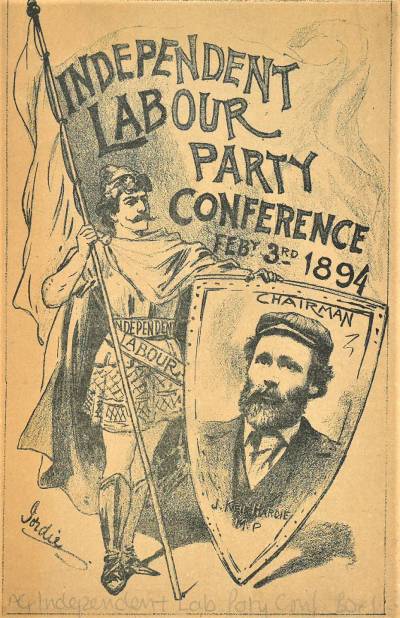
In 1900, the ILP was instrumental in founding the Labour Representation Committee (LRC) jointly with other affiliated organisations including some trade unions. Its main function was to support ‘Labour’ MPs in parliament and recommend candidates to stand in elections. In the 1906 general election, the LRC won 29 seats and afterwards, the MPs decided to adopt the name ‘The Labour Party’. In the Party’s early years, the ILP provided much of its activist base as the Party did not have individual membership until 1918 but operated as a conglomerate of affiliated bodies.
coleford ILP
The first secretary of Coleford ILP was Llewellyn Griffiths, an insurance agent and later a postman, who lived on Boxbush Road. The Coleford ILP membership included trade unionists such as James Sayes who had been sacked from his job at Wimberry Slade drift mine, which was owned by Cannop colliery, in October 1911 for organising a strike against non-unionism. Others included Arthur Sheldon who worked as a foreman stone mason in a local quarry, and William Smith who worked as a hewer at Cannop Colliery. During 1911, Smith was President of the Forest of Dean Miners Association (FDMA), the trade union representing the Forest of Dean miners who made up the biggest proportion of the workforce in the Forest.
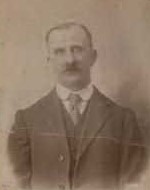
Not all members of the Forest ILP were industrial workers as shopkeepers and tradesmen also joined the party. Arthur Hicks, a bootmaker, was elected the secretary of the Coleford branch of the ILP in 1910.3 Also active was Tom Liddington an insurance worker who lived on Newland Street, and in the past had worked on the railways and in the mines, and William Morris (nicknamed the oldest socialist in the Forest) who ran an ironmonger’s shop on St John’s Street in Coleford.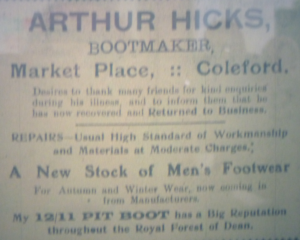
Women’s Labour League
In 1911, some socialist women organised a Women’s Labour League branch in the Forest of Dean. The League had been founded in 1906 to promote the political representation of women in parliament and local bodies and was affiliated to the Labour Party. These included Ellen Hicks, Mary Liddington, Annie Tomlins, who was a schoolteacher, and Annie Pope, who trained as a nurse and had been a member of the Social Democratic Federation (SDF), a small socialist and Marxist party founded in 1881. Annie Pope helped run the Waverley, a temperance hotel, with her husband Ben and Annie Tomlins was a resident at the hotel.
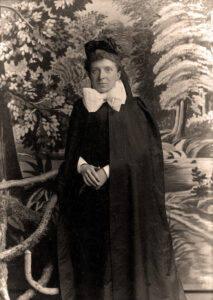
Forest of Dean Miners Association
The Miners Federation of Great Britain (MFGB), which represented the local miners’ associations nationally, did not affiliate to the LRC until 1909. The conflict between liberalism and socialism manifested itself amongst Forest of Dean miners. During the years from 1886 to 1918, the full-time agent for the FDMA was George Rowlinson, a member of the Liberal party. He opposed attempts by Smith and other miners to affiliate the FDMA to the Labour Party. There was a split between those miners, mainly from the Cinderford area, who supported Rowlinson and the Liberals, and those miners, mainly from West Dean, who supported Smith and the ILP.
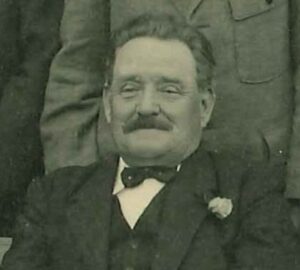
The MP for the Forest of Dean from 1892-1911 was Sir Charles Dilke, a popular Liberal MP and an independent thinker, ready to defy the party whip on labour issues especially in support of the Forest miners. After his death on 26 January 1911, an election was called for the following month.
The National Executive of the Labour Party decided that, given the large working-class population in the Forest, a Labour candidate should be selected.4 The Executive proposed that Robert Smillie, the Vice President of the MFGB, should stand in the next election. Smillie visited the Forest to discuss his nomination in early February and this was followed by a meeting of representatives of all the trade unions in the Forest of Dean. Rowlinson and some of his supporters on the FDMA Executive successfully argued against backing a Labour candidate, insisting on the continued support for the Liberals.5
The Liberals selected Sir Henry Webb from Hereford, a member of the gentry who was fond of fishing and shooting. He also held considerable financial interests in the coal industry, including a directorship of the Ocean Coal Company in South Wales. He was also a shareholder of the Norchard Colliery in Lydney. Webb won the election against the Conservative Party candidate. In response, Smith and the ILP started a campaign within the mining community to sponsor a Labour candidate to run in any future general election. However, Rowlinson told a meeting of miners in August 1911 that if they decided to run a Labour candidate, they would have to find the cash themselves as not a single penny of FDMA money would be made available to them.6
The Clarion
A popular newspaper among the Coleford socialists was the Clarion which was founded by Robert Blatchford as a weekly Socialist newspaper. Clarion Vans toured the country distributing socialist propaganda and made regular visits to Coleford first arriving in 1897. Clarion readers organised branches and various activities such as cycling clubs, music societies and rambling clubs. Arthur Hicks was secretary of the Clarion Cycling Club in Coleford. This excerpt from the Clarion in August 1911 reveals that Coleford was the centre of Socialist activity in the Forest at the time:
“Meetings throughout the Forest of Dean continue to be well attended. Collections and sales are, however, small, on account of the extreme poverty of the districts worked. Following the formation of a Branch at Ruardean, similar good results followed at Ruardean Hill, Drybrook, and Lydbrook. The work is being followed up by the men from Coleford and elsewhere, and the movement is now well afoot through the Forest constituency. At Cinderford I had a bad pitch and poorer crowds than I expected, but Lydbrook and Coleford did decidedly better. Smith, of the Miners’ Union, gave me a rest one night, and Morris, of Coleford, also spoke; while Arthur Hicks, has seldom been absent, and has been of immense help during the last few weeks.”7
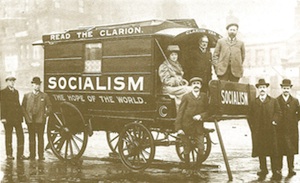
In 1911, the railwaymen in the Forest of Dean supported a national strike. In March 1912, a successful coal strike in support of a demand for a minimum wage was supported by miners in Coleford, many of whom worked at Cannop Colliery. These strikes strengthened the link between local trade unionists and the ILP.
1912 Election
In early 1912, Webb was appointed as a Junior Whip. The rules at the time required that MPs appointed as Junior Whips were required to face the electorate again. This provided a new opportunity for Labour supporters in the Forest to stand a candidate against Webb.
A meeting to establish the Dean Forest Labour Party was held at Speech House at the end of April 1912 attended by over 600 people. Smith chaired the meeting and explained that the object of the meeting was to consider putting forward a candidate to contest the parliamentary election in May 1912. James Sayes put the following resolution to the meeting:
In the opinion of the meeting, it was necessary that the workmen of the Forest should be represented in Parliament by a member who was independent of the Liberal or Tory parties, and that they call on the Executive Committee of the Forest of Dean Miners’ Association to take immediate steps to open negotiations with the Miners’ Federation to recommend a Labour candidate to contest the pending election.8
The resolution was passed unanimously with supporting comments from Arthur Sheldon and William Morris and it was suggested that Smith should be the candidate. However, a letter from Rowlinson was read out to the meeting in which he argued that the gathering had no connection with the FDMA and so could not commit the union to support a Labour candidate. Rowlinson continued to campaign within the FDMA against the idea of a Labour Party candidate. After a bitter dispute with Rowlinson and his supporters, the Labour Party failed to obtain the support of the FDMA Executive Committee and could not raise the finances to contest the election. In May 1912, Webb was elected again, unopposed.
In June 1912, Coleford ILP arranged a well-attended public meeting in the Drill Hall with Keir Hardie now the Labour MP for Merthyr. The meeting was chaired by Smith and music was played by a band conducted by Ben Pope. Hardie gave a rousing speech in which he said:
The present conditions would only be changed when the people were determined that a change should take place. He did not grudge the rich for their learning, their leisure, and their wealth. All he grudged them was their monopoly of these things. He wanted to win for every man and woman the same opportunities and advantages as were today practically a monopoly in the hands of the rich. This was only to be won by breaking down the artificial class barriers which now existed For their own sake and for the sake of their wives and children he asked them not to accept the inevitable. If they could not win. they could at least be rebels and die fighting for the coming of better days.9
Local Elections
Meanwhile, socialist candidates were having some success in local elections. Liddington was elected to West Dean District Council from 1910 to 1915 where he campaigned for social housing. He was also elected to the Coleford Urban District Council between 1913 and 1919 and was elected as a manager of the Coleford schools. In 1917 he was elected to represent Coleford on the Monmouth Board of Guardians and in 1918 he was elected as Secretary of the Forest of Dean Commoners Association. Annie Pope stood for election to the Council in April 1913 but failed to get elected.10 However, in 1912 Ellen Hicks was elected as a Poor Law Guardian and in 1913 she was elected to Coleford Urban District Council. In 1920 she was appointed as a magistrate.
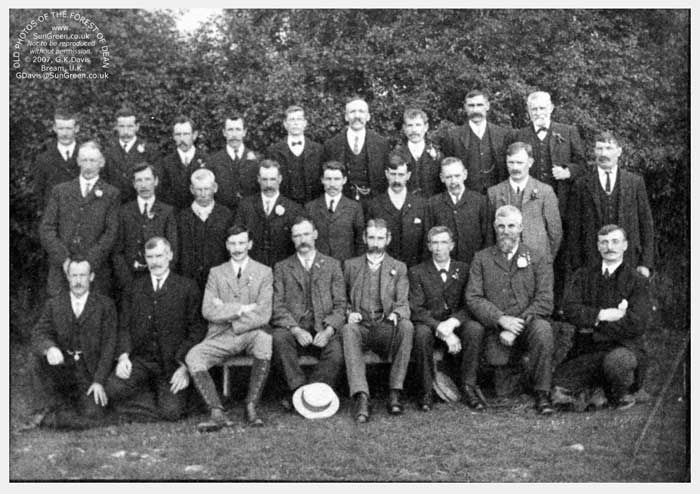
British Socialist Party
The Forest branches of the ILP were short-lived and by August 1914 all had disappeared after their failure to put forward a candidate in the parliamentary election. A small number of foresters were looking for something more radical and joined the British Socialist Party (BSP) a Marxist organisation established in 1911 and similar to the SDF. The BSP argued for a socialist and anti-capitalist programme as opposed to the more moderate Labourism of the ILP. Many were not ideologically rigid and tended to mix in both organisations and in the Forest of Dean both the ILP and BSP influential within the FDMA. By July 1914 the Forest of Dean BSP had about 30 members and held regular meetings and educational study groups mainly around Coleford.
A well-attended public meeting organised by the branch in July 1914 was presided over by Tom Liddington. The main speaker from London was Edwin Fairchild and he attacked the local Liberal MP, Harry Webb:
When the colliers of the Forest of Dean realised that Mr Harry Webb would no longer be their member in parliament – (hear, hear) – but they would have a man representing the working classes, who was prepared to stand on the floor of the House of Commons and say that until the workers of this country determined that they would be masters of the nation they must forever remain poor.12
War
The upsurge in working-class militancy, the campaign for women’s suffrage, the development of working-class self-education and a growing internationalism must have made some people from Coleford believe that the world could rid itself of injustice and poverty. However, in August 1914, any dream of a better world was shattered by war. Under the influence of pacifism and internationalism, most members of the ILP and the BSP opposed Britain’s decision to go to war. Many young men from Coleford, however, responded to the call of arms. In his book on Coleford, the renowned local historian, Cyril Hart, wrote that the First World War:
Colefordians in general, alike with most people elsewhere, endured the four years with anxiety, apprehension, and depredation… The tremendous casualty lists that resulted from the many Allied offensives to break through the enemy lines scarred the memories of a whole generation.13
Land Fit for Heroes
During the war, socialist ideas and the demand for a land fit for heroes gained traction. In 1918, Rowlinson was voted out of office over his support for the Liberal Party and the conscription of miners and replaced by Herbert Booth, a young socialist miner from Nottinghamshire. At the end of May 1918, James Wignall, an official of the dockers union from Swansea, was adopted as the Forest of Dean Labour candidate at a meeting chaired by Arthur Hicks and attended by over 70 delegates with the full support of the FDMA. In November 1918, Wignall, defeated the Liberal candidate, Sir Harry Webb and became the first Forest of Dean Labour MP.
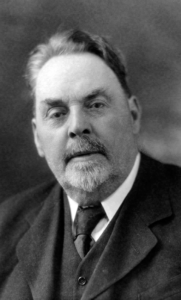
The small group of Coleford socialists were responsible for establishing a rich legacy of socialist thinking in the Forest which challenged existing ideas about labour, the role of women and internationalism. In this sense, their legacy was intellectual rather than organisational but it had a deep impact in the Forest of Dean and laid the foundations for the election of its first Labour MP.
1Howe, J. Liberals, Lib-Labs and Independent Labour in North Gloucestershire,1890-1914, Midland History, Vol. 11,
2The ILP was affiliated to the Labour Party from 1906 to 1932, when it voted to leave.
3Gloucester Citizen 19 August 1912
4The Times 01 February 1911
5The Times 10 February 1911
6Cheltenham Chronicle 12 August 1911
7Clarion 11 August 1911
8Gloucester Journal 27 April 1912
9Gloucester Journal 22 June 1912
10Gloucester Journal 12 April 1913
11Justice 26 March 1914
12Gloucester Journal 18 July 1914
13 Hart, Cyril, Coleford, Alan Sutton, 1983